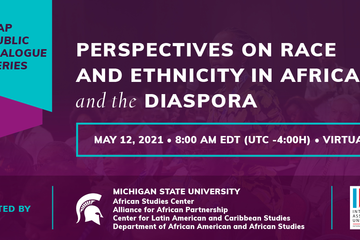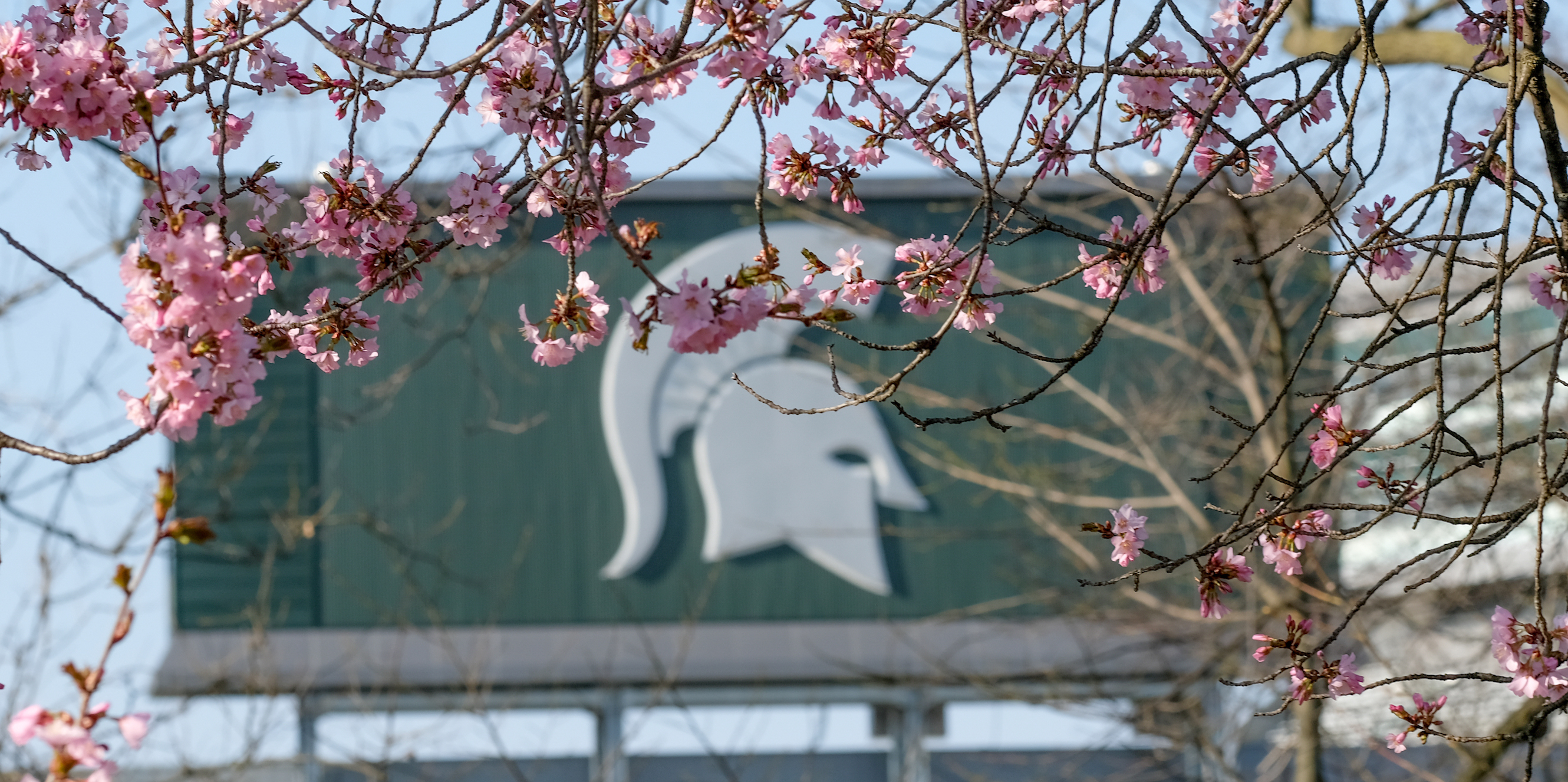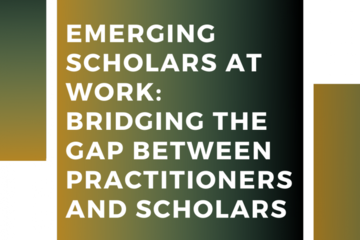Browse
Education
The Emerging African Scholars' Virtual PhD Workshop 2021: Combined Professional Development Workshop
ARCOSA has published a recording of their Emerging African Scholar's Virrtual PhD Wrokshop for anyone to view! This video specifically captures the "Navigating the Publication Process: Advice for Junior Scholars from Journal Editors" session.
The session was anchored by Professor Zachariah Mampilly; Marxe Endowed Chair of International Affairs at the Marxe School of Public and International Affairs at City University New York.
By:
Madeleine Futter
Friday, Aug 20, 2021
YOUTH EMPOWERMENT
+2
Leave a comment
STEM Education in the United States: Progress without a Plan
An overview of K-16 STEM education in the United States
By:
Christopher Reimann
Monday, Aug 16, 2021
EDUCATION

Leave a comment
Quality higher education ‘indispensable’ for Africa’s future
Vice Chancellor and Professor of the Humanities and Social Sciences at the United States International University- Africa, Dr. Paul Zeleza has written an article on the role of higher education in the transformation of Africa. Zeleza additionally represents AAP as one of our advisory board members. Zeleza states within the article that quality and transformative higher education is indispensable to use the growth of Africa’s population for the betterment of the continent’s future.
To read more: https://www.universityworldnews.com/post.php?story=202107051145016&utm_source=twitter&utm_medium=social&utm_campaign=uwn-AF320
By:
Madeleine Futter
Monday, Aug 16, 2021
EDUCATION
No Preview Available
Leave a comment
Postgraduate Training Opportunities under the RUFORUM Graduate Teaching Assistantship Program (GTA)
During the annual meeting of Vice Chancellors/Presidents/Principals/Rectors of RUFORUM Member Universities (see links about RUFORUM flier and RUFORUM at a Glance) held on 11th November 2020, the Vice Chancellors re-affirmed their commitment to the Graduate Teaching Assistantship Program that they initiated in 2014. The objectives of the GTA are to: i) Improve the quality of higher education and increase the pool of PhD-level trained academic staff in African universities; ii) Provide opportunities for the doctoral research to contribute more directly to African development; iii) Strengthen inter- university collaboration in the field of higher education in Africa; and iv) Promote staff mobility among RUFORUM member universities, and across Africa.
Following the meeting of the Vice Chancellors on 11th November 2020, the RUFORUM Secretariat is pleased to announce the availability of training opportunities at the different Member Universities as part of the GTA arrangement. The Secretariat invites for more offers from the other member universities to train GTA candidates.
Under the GTA arrangement:
The sending universities nominate the staff to be trained and RUFORUM Secretariat helps to get them placed in receiving (host) Universities.
The sending universities commit to pay for travel, health insurance, upkeep and research of their staff under training.
The receiving/host universities waive the fees and associated costs, and provide accommodation for the admitted GTA Fellows
Once admission process is completed, the sending and host universities and the nominated GTA Fellow sign a Tripartite Agreement to guide the hosting and training of the Fellow
In some cases where opportunities exist, the host University may attach the GTA Fellow to the research program at the hosting university.
The RUFORUM Secretariat facilitates the GTA arrangement and follows up on the GTA training
The nominations by the Vice Chancellors for the available positions should be submitted to RUFORUM Executive Secretary at secretariat@ruforum.org as soon as possible.
https://ruforum.wordpress.com/2021/05/10/postgraduate-training-opportunities-under-the-ruforum-graduate-teaching-assistantship-program-gta-3/?utm_source=RUFORUM%20Mailing%20List
By:
Madeleine Futter
Monday, Aug 16, 2021
EDUCATION
No Preview Available
Leave a comment
Creating Sustainable U.S. - East Africa Partnerships for Disability Inclusion
Professional Fellows Alumni Webinar:Creating Sustainable U.S. - East Africa Partnerships for Disability InclusionThursday, May 27, 2021, 12:00 p.m. – 1:30 p.m. ET
Webinar Description:
The Association of University Centers on Disabilities (AUCD) and Humanity & Inclusion (HI) invite you to join a Professional Fellows alumni webinar on how universities, DPOs, and other disability rights groups in the United States and East Africa can create independent, sustainable partnerships that promote inclusive employment and education in lasting ways.
By interacting with a panel of U.S. outbound and Professional Fellows alumni, attendees will learn:
How universities and disability rights leaders in East Africa can exchange inclusive practices and empower communities.
How to create professional development opportunities and low-cost trainings that let disability professionals in the U.S. and East Africa learn from each other during the pandemic.
How to build expertise in inclusive employment and education among teachers and service providers in East Africa remotely.
Panelists:
Dr. Martin Blair, Executive Director, University of Montana Rural Institute for Inclusive Communities
Dr. Margo Izzo, Transition Services Director, The Ohio State University Nisonger Center
Dr. Macdonald Metzger, Director of Outreach, Education, and Interdisciplinary Training, University of Minnesota Institute on Community Integration
Elizabeth Shiakamiri, Innovation to inclusion (i2i) Programme Manager, Leonard Cheshire, Nairobi, Kenya
Bijal Lal, Founder and Special Educator, Tujumuishe Tanzania, Dar es Salaam, Tanzania
Please Note:
CART transcription will be available for all attendees. Please contact Siddarth Nagaraj (snagaraj@aucd.org) for any accommodations needs or general inquiries.
There is no cost for this webinar.
CEUs are not offered for this webinar.
This webinar will be held on the Zoom Platform. You can test your connection with Zoom before joining the meeting here.
This webinar will be archived.
By:
Derek Tobias
Monday, Aug 16, 2021
EDUCATION

Leave a comment
African Alliance for Youth Sport and Entrepreneurship Video
The AAP-funded African Alliance for Youth Sport and Entrepreneurship (AAYSE) program aims to test the effects of a structured, sport-based life skills and entrepreneurship program on life skills and entrepreneurial mindsets of youth in Ghana, Botswana, and Tanzania.
Young students were invited to the University of Botswanafor training on entrepreneurship, individual growth, and teamwork through the medium of sports. We look forward to continued success with this team.
Watch here: https://www.youtube.com/watch?v=aQZ7S7LHzdU
By:
Madeleine Futter
Monday, Aug 16, 2021
YOUTH EMPOWERMENT
+1
Leave a comment
Perspectives on Race and Ethnicity in Africa and the Diaspora
AAP will hold its third Public Dialogue in two weeks! On May 12, a panel of leaders will share their perspectives on higher education institutions’ role in structural racism, global race relations, racist actions, and paths for meaningful change. The “Perspectives on Race and Ethnicity in Africa and the Diaspora” session is co-hosted by @African Studies Center, @Center for Latin American and Caribbean Studies, @Dept of African American and African Studies, and @international Association of Universities.
Agenda:
8:00AM - Welcome remarks & introduction of dialogue
Moderators:
Dr. CassandraVeney, Professor and Chair, Dept of International Relations, US International University, Kenya (USIU)• Dr. Upenyu Majee, Manager, Ubuntu Dialogues Project, African Studies Center, MSU
8:05AM - Opening Remarks: Dr. Pero G. Dagbovie, University Distinguished Professor & Associate Dean, The Graduate School, MSU: The historical context of the Black experience globally
Panelists
8:20AM - Jabbar R. Bennett, Vice President & Chief Diversity Officer, Michigan State University 8:30AM - Norman Duncan, Deputy Vice-Chancellor, University of Pretoria, South Africa 8:40AM - Funmi Olonisakin, Vice President International, Kings College London, United Kingdom 8:50AM - Ana Flávia Magalhães Pinto, Professor, Dept of History, University of Brasília, Brazil 9:00AM - Sharron Reed-Davis, President, Black Student Alliance 9:10AM - Q&A Session 9:25AM - Monique Kelly, Assistant Professor, Dept of Sociology, MSU
To register: https://msu.zoom.us/webinar/register/5616184940488/WN_HC8K6Gw7RyS1Z1JV1SOf0Q
By:
Madeleine Futter
Monday, Aug 16, 2021
CULTURE AND SOCIETY
+1

Leave a comment
MSU ranks globally for impact on SDGs
Michigan State University has been recognized international for progress in the United Nations’ Sustainable Development Goals (SDGs). Most significantly, MSU was ranked #1 nationally and #4 internationally in the key goal of “Zero Hunger”. The Times Higher Education (THE) Impact Rankings are determined through submitted documents and activities by universities which are relevant to SDG indicators.
Additionally, MSU was placed #3 for “Partnership for the Goals”. This demonstrates the work of the MSU International Studies and Programs which utilize international connections to push forward SDGs in curriculum and research.
AAP is proud of its work to bring together member institutions and support international work. Specifically, our recent Partnerships for Innovative Research in Africa (PIRA) grants ensure multi-institutional collaboration on projects. PIRA is a tiered funding opportunity designed to cultivate and support transnational research partnerships which will directly impact lives within Africa and beyond.
AAP has also recently held two of our Public Dialogue Sessions which have utilized global partnerships to better communicate ongoing global challenges within vaccine distribution and soil health. Our latest dialogue session, “The Future of Farming to Meet Sustainable Development Goals in Africa: Reflections on Soil Health and Policy”, directly addressed MSU’s dedication to the progress of SDGs.
To read more about MSU’s impact: https://msutoday.msu.edu/news/2021/times-higher-ed-impact
To learn about THE ranking: https://www.timeshighereducation.com/impactrankings#!/page/0/length/25/sort_by/rank/sort_order/asc/cols/stats
By:
Madeleine Futter
Monday, Aug 16, 2021
AGRI-FOOD SYSTEMS
+1

No Preview Available
Leave a comment
Announcing Journal of West African History, Volume VI, Issue II
Founding Editor-in-Chief: Nwando AchebeEditors: Saheed Aderinto, Trevor Getz, Vincent Hiribarren, and Harry OdamttenBook Review Editors: Mark Deets and Ndubueze Mbah
JWAH 6.2 NOW AVAILABLE ON JSTOR AND PROJECT MUSE!
The Journal of West African History (JWAH) is an interdisciplinary peer-reviewed research journal that publishes the highest quality articles on West African history. Located at the cutting edge of new scholarship on the social, cultural, economic, and political history of West Africa, JWAH fills a representational gap by providing a forum for serious scholarship and debate on women and gender, sexuality, slavery, oral history, popular and public culture, and religion. The editorial board encourages authors to explore a wide range of topical, theoretical, methodological, and empirical perspectives in new and exciting ways. The journal is committed to rigorous thinking and analysis; is international in scope; and offers a critical intervention about knowledge production. Scholarly reviews of current books in the field appear in every issue. And the publication is in both English and French; an abstract in both languages will be provided. JWAH is published by Michigan State University Press.
Editor’s Note
Vincent Hiribarren, "African History Will Make Us Breathe"
Articles
Klas Rönnbäck, “The Built Environment of the Precolonial West African Coast: Materials, Functions, and Housing Standards”
Ismail Warscheid, “The West African Jihād Movements and the Islamic Legal Literature of the Southwestern Sahara (1650–1850)”
Holly Rose Ashford, “Modern Motherhood, Masculinity, and Family Planning in Ghana, 1960–75”
Retrospective
Jan Jansen and James R. Fairhead, “The Mande Creation Myth, by Germaine Dieterlen, as a Historical Source for the Mali Empire”
Conversations
Kwasi Konadu, “COVID-19 and Caution for Historians: Views from a Place in West Africa”
Karen Flint, “‘Africa Isn’t a Testing Lab’: Considering COVID Vaccine Trials in a History of Biomedical Experimentation and Abuse”
Alhaji U. Njai, “COVID-19 Pandemic at the Intersection of Ebola, Global Leadership, and the Opportunity to Decolonize the Political Economy of Sierra Leone”
Helen Tilley, “COVID-19 across Africa: Colonial Hangovers, Racial Hierarchies, and Medical Histories”
Book Reviews
Harry N. K. Odamtten, Edward W. Blyden’s Intellectual Transformations: Afropublicanism, Pan-Africanism, Islam, and the Indigenous West African Church, reviewed by Tracy Keith Flemming
Jonathan E. Robins, Cotton and Race across the Atlantic: Britain, Africa, and America, 1900–1920, reviewed by Andrew James Kettler
Emily S. Burrill, States of Marriage: Gender, Justice, and Rights in Colonial Mali, reviewed by Harmony O’Rourke
Katherine Ann Wiley, Work, Social Status, and Gender in Post-Slavery Mauritania, reviewed by Erin Pettigrew
Cassandra Mark-Thiesen, Mediators, Contract Men, and Colonial Capital: Mechanized Gold Mining Colony, 1879–1909, reviewed by Andrea Ringer
Submissions
The editorial board invites scholars to submit original article-length manuscripts (not exceeding 10,000 words including endnotes, 35 pages in length) accompanied by an abstract that summarizes the argument and significance of the work (not exceeding 150 words). Please see submission guidelines for detailed expectations. Review essays (not exceeding 1,000 words) should engage the interpretation, meaning, or importance of an author’s argument for a wider scholarly audience. See what we have available for review on our Book Reviews page. Please contact our Book Review editors Mark Deets mark.deets@aucegypt.edu and Ndubueze Mbahndubueze@buffalo.edu for more information.
Manuscripts submitted to the Journal of West African History should be submitted online athttps://ojs.msupress.msu.edu/index.php/JWAH/about/submissions. In order to submit an article, you will have to create an account. The site will guide you through this process.
By:
Madeleine Futter
Monday, Aug 16, 2021
CULTURE AND SOCIETY
+2
No Preview Available
Leave a comment
ASA Seminar: "Emerging Schoars at Work"
Join us for an ASA Member exclusive event entitled Emerging Scholars at Work: Bridging the Gap Between Practitioners and Scholars on March 22, 12:00pm EST/UTC-4. We’ll be joined by with Jean Claude Abeck, an ASA Emerging Scholar (Howard) and Founder of the think tank Africa Center for Strategic Progress (ACSTRAP). ACSTRAP bridges the gap between knowledge and public policy process by partnering with seasoned experts both in Africa and around the world.
Zoom links to this event will be available in MyASA. Sign up to receive a reminder about this event.
To register click here
By:
Madeleine Futter
Monday, Aug 16, 2021
EDUCATION
+1

Leave a comment
ACARE's 2020 Annual Report
Access the 2020 Annual Report for the African Center for Aquatic Research and Education here
"The year 2020 seemed longer than usual. When we looked up from our desks, we realized that it was not actually the 15th month of 2020, but March of 2021. The photo at the right is a perfect representation of our year of interactions.
We are excited to share with you our successes and progress from 2020. Despite interacting with you only on screens and trapped in our basements, we grew, and we continue to do so.
We look forward to another good year and anticipate we will be seeing you in person soon."
By:
Madeleine Futter
Monday, Aug 16, 2021
WATER, ENERGY, AND THE ENVIRONMENT
+1
No Preview Available
Leave a comment
Professional Fellow Program Finalizes Participant Projects
The AAP is pleased to conclude another successful cohort from the US Department of State Professional Fellows program. With help from our partners at Kyambogo University in Uganda, the University of Nairobi in Kenya, and Sokoine University of Agriculture in Tanzania, we were able to identify and support the 12 East African fellows.
This year provided unique challenges due to COVID-19 travel restrictions. We celebrate the challenges and successful of the fellows and continue to support their upcoming projects. To hear from the fellows, coordinators, and program manager about the fourth cohort, please check out the link below.
https://aap.isp.msu.edu/news_article/22867
By:
Madeleine Futter
Monday, Aug 16, 2021
AGRI-FOOD SYSTEMS
+1
No Preview Available

Leave a comment